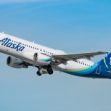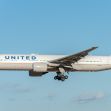A Suffolk County police officer and Marine Corps veteran, Matias Ferreira, has sued Delta Air Lines, alleging the carrier’s crew discriminated against him by forcing him to give up his emergency exit-row seat because he wears prosthetic legs. The lawsuit, filed November 10 in Queens County Supreme Court, accuses the airline of intentional infliction of emotional distress, negligent hiring, and negligent supervision.
Court papers state that Officer Matias Ferreira boarded Delta Flight 1029 at John F. Kennedy International Airport on May 17, 2025. He had purchased a ticket for seat 21D, located in an emergency exit row. The lawsuit says that, before departure, members of the flight crew confronted him in front of other passengers and told him he could not remain in that row due to Federal Aviation Administration rules. Ferreira, who was wearing shorts that made his prosthetic legs visible, said he told the crew he was able to reach and operate the exit and assist other passengers if an emergency occurred.
As a former U.S. Marine, Ferreira lost both legs below the knee after stepping on an improvised explosive device in Afghanistan. He told the crew he had trained extensively for emergency response and had no difficulty reaching or opening the exit.
He also noted that Delta’s in-flight safety placard includes an illustration of an above-the-knee amputee assisting with an evacuation. Despite this information, the crew reassigned him to another seat.
According to the lawsuit, he routinely books exit-row seating for additional space and had never previously been asked to move from such a seat. The veteran states in the filing that the reassignment caused him embarrassment and distress, triggering emotional trauma he had worked to overcome following his rehabilitation.
Shortly after the incident, Delta sent Ferreira a letter clarifying that passengers who use prosthetics are not prohibited from sitting in an emergency exit row. According to that correspondence, travelers may remain there as long as they verbally confirm their willingness and ability to assist during an evacuation. This guidance aligns with federal rules, which do not automatically bar amputees from occupying these seats.
Ferreira’s complaint brings a claim of intentional infliction of emotional distress, alleging the public dispute was “extreme and outrageous,” language that reflects the legal standard under New York law. Under this doctrine, a plaintiff may seek damages when conduct is so severe that it could cause significant emotional harm to a reasonable person. The filing argues that the flight crew’s actions met this threshold because the confrontation occurred openly in front of other passengers.
The complaint further alleges that Delta is responsible for its employees’ conduct under a principle known as vicarious liability. In plain terms, this doctrine holds employers accountable for the actions of workers performing their job duties. The filing claims the crew was acting within the scope of their employment when the seating dispute unfolded.
In addition, the lawsuit alleges negligent hiring, retention, and supervision. These claims require employers to use reasonable care when selecting and overseeing workers who interact with the public. Ferreira contends that Delta did not provide adequate training or oversight on disability inclusion and exit-row seating procedures, which he argues contributed to the confrontation aboard Flight 1029.
Delta issued a public statement acknowledging that it reviewed the incident and apologized directly to Ferreira. A spokesperson said the company issued a refund and compensation and took “appropriate corrective actions internally.” The airline stated that it has a longstanding focus on accessible travel and consults with its Advisory Board on Disability and Accessible Travel, and added that it will address the allegations through the legal process.
The filing asks the court to award compensatory and punitive damages and to require Delta to implement additional anti-discrimination training for its flight crews, arguing that clearer instruction is needed to ensure passengers with prosthetic limbs are treated equitably.






